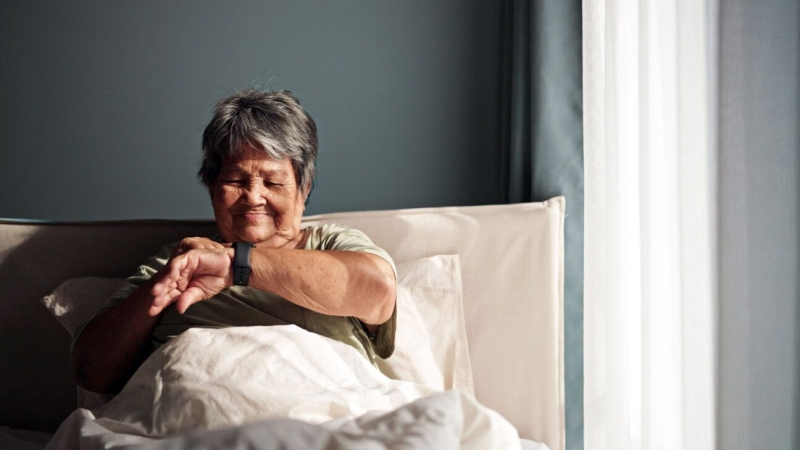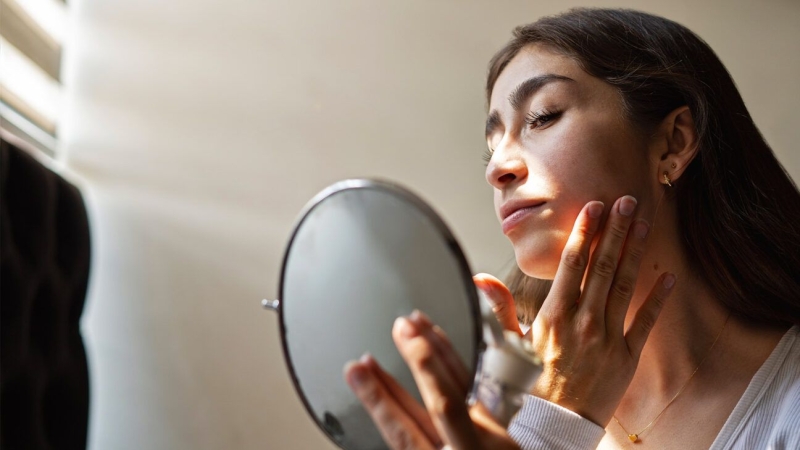
- Apple has announced a new sleep apnea detection feature on its Apple Watch 10.
- The detection algorithm is based on advanced machine learning.
- Data from the app can be given to your doctor to help start a conversation.
- Doctors say its availability will make it easier for sleep apnea to be detected early.
- It can also help people break through their resistance to seeing a doctor for a diagnosis.
On September 9, 2024, Apple held a “Glowtime” event to announce the latest iterations of its popular Apple Watch, AirPods, and iPhone.
The broadcast, hosted by Apple CEO Tim Cook, was meant to highlight the many ways these devices can accentuate the average person’s health and wellness goals.
While outlets like CNET declared the Apple Watch 10’s big screen the most “dramatic” feature unveiled at the event, it’s the device’s new sleep apnea detection feature that has healthcare providers buzzing.
The newest Apple Watch will have technology on board that will make it possible to notify the wearer if they appear to be having symptoms of the condition.
What is sleep apnea?
Sleep apnea affects 39 million adults in the United States alone.
According to the National Heart, Lung, and Blood Institute, sleep apnea occurs when a person’s breathing repeatedly stops and starts during sleep, either due to a blocked airway or the brain’s failure to send the signal to breathe.
Symptoms can include:
- Loud snoring
- Gasping for air
- Excessive daytime sleepiness
- Problems concentrating
- Dry mouth
- Headaches
- Decreased sex drive
- Waking at night to go to the bathroom
Diagnosis and treatment, most often with a continuous positive airway pressure (CPAP) machine, is essential because sleep apnea can increase people’s risk for several health problems, including cancer, high blood pressure, kidney disease, heart disease, and type 2 diabetes.
How sleep apnea detection on the Apple Watch will work
According to Apple, the Apple Watch 10 will provide a new metric called “Breathing Disturbances.”
According to the company, the algorithm that provides this metric was developed using advanced machine learning and trained using an “extensive data set of clinical-grade sleep apnea tests.”
Additionally, a clinical study was conducted to validate the algorithm and determine whether it could detect sleep apnea in people who had already been diagnosed with the disorder.
This metric will be obtained by using the watch’s accelerometer to monitor any small wrist movements that occur due to interruptions in sleep.
Every 30 days, the watch will analyze this data and notify the wearer if there are any signs of moderate to severe sleep apnea that need to be reported to their physician.
In a similar way, the metric can also give people information about their overall sleep quality.
The Health app will contain data that can be viewed at any point so people can get an idea of whether they have had disturbed breathing the night before or over a one-month, six-month, or one-year period.
Additionally, Apple Watch users will be able to export all of the collected data as a PDF file that can be taken to a healthcare professional for evaluation.
Apple states that it expects to receive marketing authorization from the U.S. Food & Drug Administration and other health agencies worldwide soon.
The watch will be available in over 150 countries and regions this month, including the United States, Japan, and the European Union.
What doctors think about Apple’s sleep apnea detection
Dr. Michael O. McKinney, a primary physician at Healthy Outlook in Jacksonville, Florida, says sleep apnea often goes unrecognized. Therefore, he feels that this new feature can “go a long way” in helping people get their sleep apnea diagnosed and treated.
McKinney additionally pointed out that the sleep apnea detection feature can provide several benefits, including early detection, improved diagnosis, and ongoing monitoring.
“The combination of sleep apnea detection with a consumer-level product like the Apple Watch means there is a greater improvement in the availability of health-tracking solutions to the masses,” he added, noting that it can help raise people’s awareness about sleep disorders and contribute to better prevention.
McKinney cautioned, however, that while a sleep apnea detection feature can provide preliminary information, it cannot replace a visit to a medical professional.
“The collected data of the watch will require information that will have to be fed to healthcare providers to check the diagnoses and adjust the treatment regimes adequately,” he explained.
Dr. Daniel Glazer, who is a clinical psychologist and the co-founder of several health technology platforms, including UK Therapy Rooms, added that from a psychological point of view, it can help give people the nudge they need to get treated.
“There’s often unfortunate psychological denial intertwined with sleep apnea’s impacts,” he explained.
However, untreated sleep apnea can have impacts on your cognitive functioning, emotional regulation, and cardiovascular health.
“Yet getting people to actually broach the subject and pursue testing is arduous, as snoring rarely feels like a crisis in the moment,” said Glazer.
Glazer went on to add that devices like the Apple Watch can be “an icebreaking catalyst” in encouraging people to seek out the treatment they need.
“No, the Apple Watch readings won’t magically prescribe a CPAP machine ready to go,” he said. “But by empowering insights into our nighttime patterns, it becomes that trusted data point compelling us to finally knock on the doctor’s door.”
Takeaway
On September 9, 2024, Apple announced several new health and wellness features for its Apple Watch, AirPods, and iPhone.
Chief among these was its new sleep apnea detection feature, which has been clinically validated as being able to detect signs of this sleep disorder.
Doctors say that while this feature cannot replace a visit to a doctor, it can help improve sleep apnea’s early detection and treatment.
It may also help people break through any psychological resistance they have about seeing a doctor for an evaluation.


